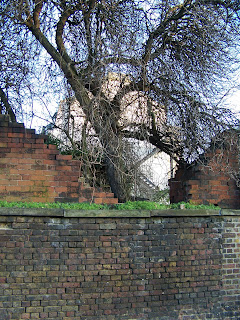Late Adjustments
In early September, shortly after we arrived in London, I wrote about adjustments we would face as we started life in this “alien” environment.
Jet lag, our first hurdle after customs, goes away by itself.
If jet lag is a wound, time heals it without fuss, whether or not elaborate coping strategies have been used.
English money is easy to understand because of its nearly precise correspondence to American money. Don’t let the unfamiliar terms throw you. Some, like “quid,” are just slang references to a particular unit; and other references, like “shilling” and “farthing,” are coins now relegated to museums and literature.
The tricky part of money is the exchange rate, which is only tricky if you feel you must calculate a dollar price for every purchase you make. People who do that on an item by item, transaction by transaction basis either have brains wired for those calculations or they have masochistic tendencies.
As far as I can tell there is no middle ground. Learn to see expenses in terms of pounds and save the micro-managing for other things.
The same kind of advice holds for calculating temperature.
We learned a set of formulas in grade school that were intended to bridge the expected American transition from Fahrenheit to Celsius. We also learned formulas for translating weight and volume from the familiar to the metric, because -- we were told -- that is what the rest of the world is doing.
Obviously, most of the shift to metrics never happened. My point here is, learn to understand Celsius in terms of how the air feels rather than in precise, mathematical terms. What difference does it make whether -1 C is 30 or 31 Fahrenheit ? At -1 C the wintery slop on the sidewalks has frozen and walking is no longer sloppy but treacherous.
Other calculations matter even less. Will I ever be interested in determining my weight in “stones”?
Well, eventually, if I were to stay here, knowing how to determine my weight in stones might prove useful, if only in conversation.
None of these things have proven to be major obstacles over the 12 weeks we have been here.
I have learned to navigate the maze of streets and negotiate the bus and tube lines. Even street traffic is less hazardous for us. One only has to look both ways before crossing, which is a lesson I was taught as a toddler anyway.
Practicing the sensible caution is the difficult part. Doing what one knows is appropriate and wise is generally the issue in life anyway, isn’t it.
But there are a few things that I have not adjusted to quite so easily.
One of these is British sport. I played soccer – excuse me, football – in high school so I understand the rudiments of the game. But I have not yet made the necessary transition to professional football, which is so consuming here. I have next to no interest in rugby, except that I find the sports page photos of bloodied players astonishing. And cricket, which has frequently dominated news since we arrived in August, remains an absolute puzzle.
Reading the sports pages, which I linger over at home, takes me a matter of seconds. I actually spend more time in Business than in Sports. What is happening to me?!
The single hardest practical adjustment, however, is a fairly simple one: the time difference between London and home.
The logical adjustment in thinking would be to simply gear my day, my waking and sleeping patterns, to my present needs. Twenty-five years ago, on our first visit to England, this was an easy process. Day is day, and night is night.
Due largely to communication advances in the last 25 years, however, I find my day reshaped, and stretched. Because I CAN talk with people now, I WANT to talk with people.
At heart, the problem is “real time.” I have stretched my bedtime to accommodate people back home – my grandchildren, for example – who naturally keep American schedules. Not much wiggle room there.
A similar tension arises over emails that I send or reply to in the morning, when I am up and thinking about whatever-it-is. If I need or anticipate a reply, I have a good long wait before these people even get up, let alone read my urgent message.
Waiting, oddly, proves stressful.
All of this says very little about England in particular or about how we manage our "English" life. It does, however, say a great deal about evolving global technologies and on how those technologies have come to manage us.
And it says a great deal about those things time alone will not heal.















